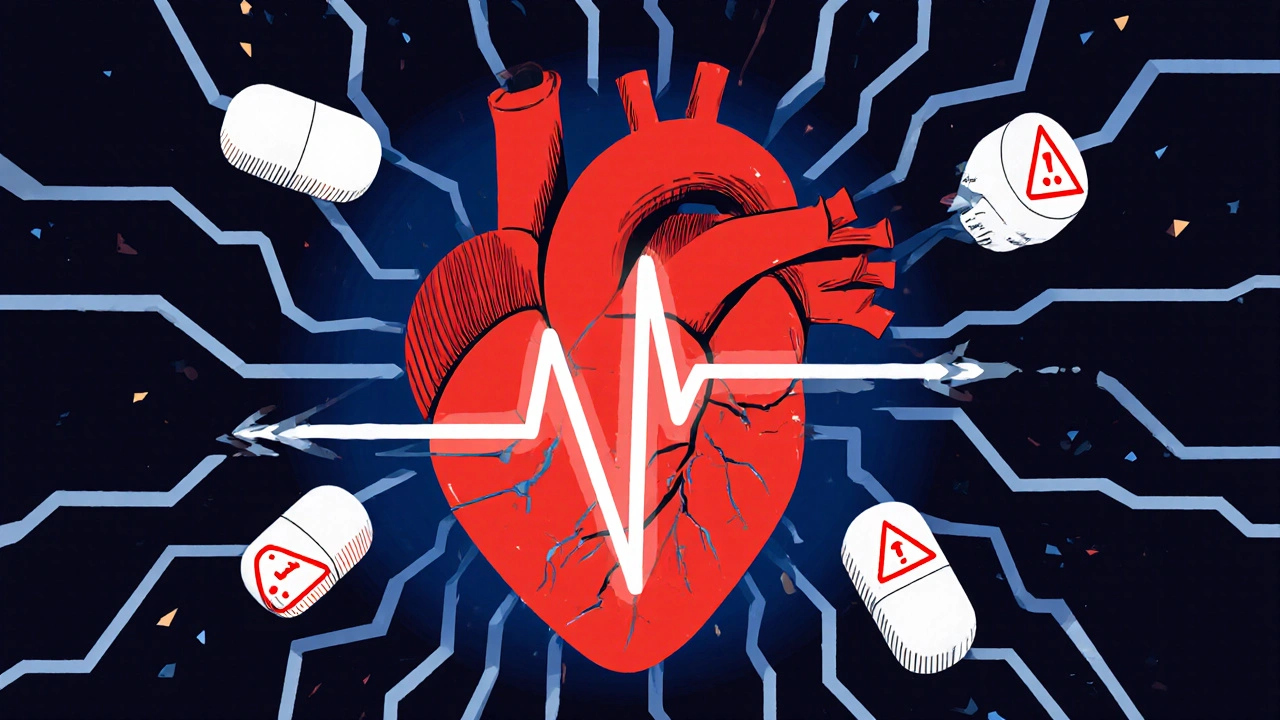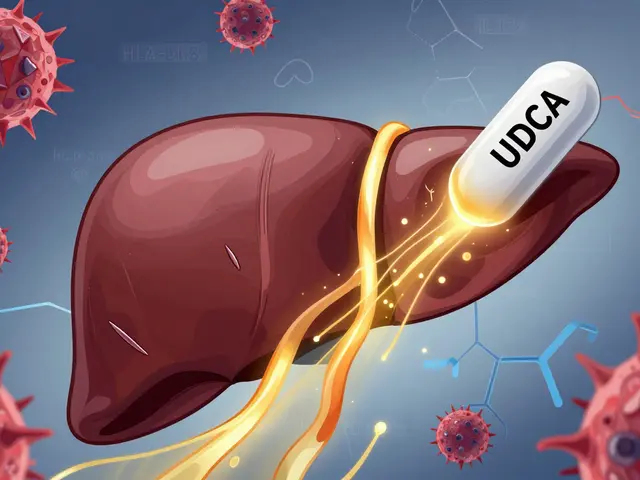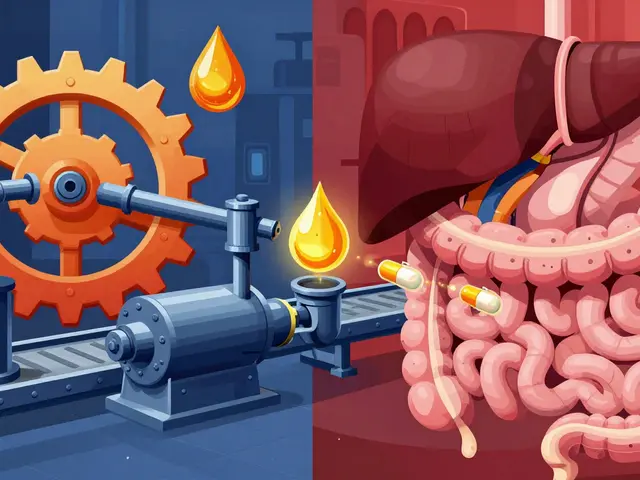Torsades de Pointes: Causes, Risks, and Medications That Trigger It
When your heart’s electrical system gets disrupted, it can spiral into Torsades de Pointes, a life-threatening type of irregular heartbeat that starts with a twisting pattern on an ECG. Also known as polymorphic ventricular tachycardia, it doesn’t just cause dizziness—it can lead to sudden cardiac arrest if not caught fast. This isn’t something that happens out of nowhere. It’s usually triggered by something you’re already taking—a medication that stretches out the QT interval, the time your heart takes to recharge between beats.
Many common drugs can do this. Citalopram, an antidepressant often prescribed for depression and anxiety, has strict dose limits because higher amounts increase the risk. Same with statins, cholesterol-lowering pills that can become dangerous when mixed with certain antifungals. Even some antibiotics, antiarrhythmics, and antipsychotics can push your heart into this dangerous rhythm. It’s not just about the drug—it’s about your age, gender, kidney function, and whether you’re taking more than one of these at once.
Women are more likely than men to develop Torsades de Pointes. So are older adults, people with low potassium or magnesium, and those with existing heart conditions. It’s not rare in hospitals—especially when someone’s on multiple high-risk meds and their labs aren’t checked often enough. The good news? It’s often preventable. If you’re on a drug known to affect the QT interval, your doctor should monitor your ECG and blood levels. If you suddenly feel your heart racing, faint, or get dizzy out of nowhere, don’t ignore it. That’s not just stress—that could be your heart warning you.
Below, you’ll find detailed comparisons of medications that can trigger this condition, what safer alternatives exist, and how to spot the early signs before it becomes an emergency. These aren’t theoretical discussions—they’re real-world guides written for people who take these drugs every day and want to stay safe.

QT Prolongation with Fluoroquinolones and Macrolides: Monitoring Strategies
Fluoroquinolones and macrolides can cause dangerous QT prolongation, leading to life-threatening arrhythmias. Learn who's at risk, which antibiotics are safest, and how to monitor with ECGs to prevent cardiac events.
read more




